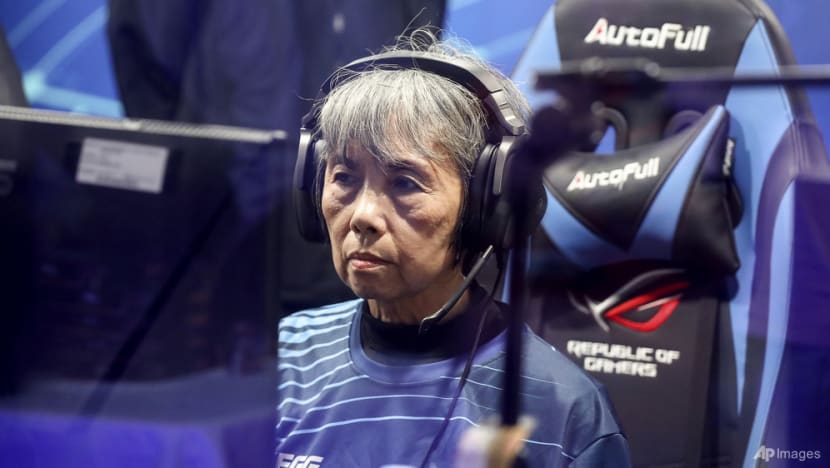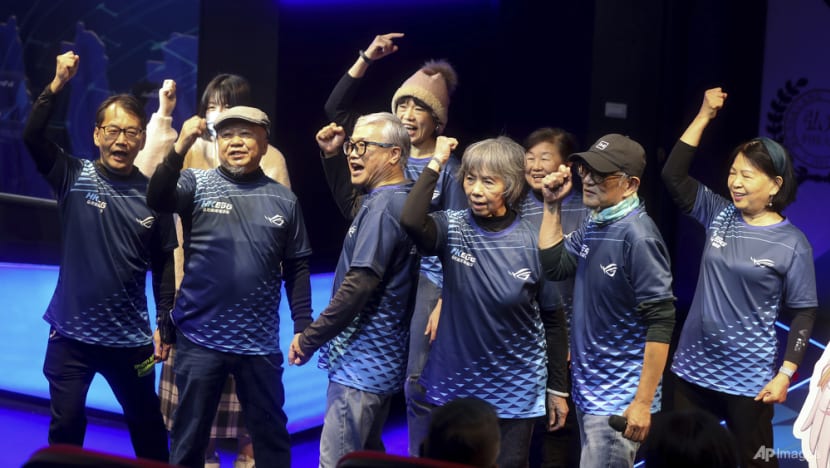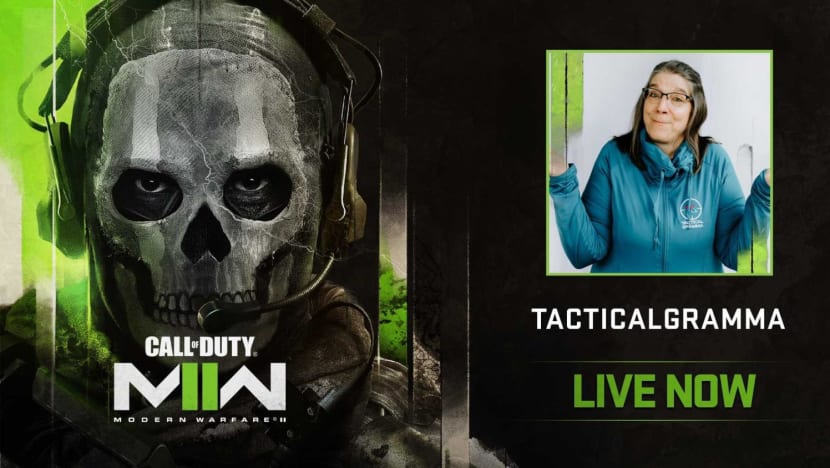Commentary: Why should we be surprised the elderly are playing video games?
Gaming is not quite set to become the new mahjong for the elderly in ageing Singapore, but we need to recognise that the appeal of computer games is getting more universal, says Dr William Wan.

SINGAPORE: When we think of seniors playing games, the stereotypical image tends to be that of Sudoku or Candy Crush.
So, when news broke of a team of seniors who took part in a League of Legends e-sports tournament in Taiwan, many were surprised.
But why?
Are we being ageist for being surprised that seniors may have a place in the cyber arena of online competitive games?

WHO IS THE FIRST “GAMER” GENERATION?
Historically, the first ever computer game created solely for entertainment was created in 1958, called Tennis for Two.
That paved the way for others, but the early computer game most recognised in popular culture is Pong, created in 1972. It was around this time too that the first generation of home consoles started to appear.
In the 1970s, baby boomers were in their teens, an age where, fast forward to today, many of our youths would be spending time gaming on their consoles, computers and mobile devices.
Yet even though computer games date to the 1960s and 1970s, I would argue that the youth of that time were more inclined towards other pursuits than watching a dot ping-ponging horizontally across the screen between two paddles.
Don’t believe me? Do a simple straw poll: Ask anyone above the age of 55 if they have any memories growing up playing computer games.
It was only in the 1980s and 1990s that video games truly took off, with titles like Super Mario Bros (1985), Sonic the Hedgehog (1991), Myst (1993) and Doom (1993).
In other words, the generation who grew up with computer games isn’t the baby boomers: It’s Generation X.
Baby boomers were the disapproving parents who dismissed computer games as a waste of time.

BABY BOOMERS FIND THEIR DIGITAL FOOTING
Yet just because they didn’t grow up with computer games doesn’t mean that older Singaporeans can’t pick it up now.
People can have a variety of interests, regardless of age. And with interest comes passion; and with passion comes performance.
There is a popular Twitch streamer called TacticalGramma, whose broad-based appeal comes in her wholesome demeanour and superb reflexes in fast-paced first-person shooter (FPS) games like Call of Duty: Warzone.
The 58-year-old doles out pixelated punishment with a healthy dose of good-natured grandmotherliness (“How dare you, sir, shame on you,” she exclaims charmingly if she hears vulgarities from a downed enemy).
She has nowhere near the audience of the biggest online streamers, but 1.4 million followers on TikTok is certainly nothing to sniff at.

A 2019 survey by US-based seniors advocacy group AARP showed that older adults are increasingly playing video games on phones and tablets in the US. Around 51 million older adults played video games frequently in 2019, up from about 40 million in 2016, the study found.
Crucially, that survey did not specify what games were being played, except to state that puzzle and logic games (50 per cent) and card and tile games (48 per cent) were the most popular.
Another more recent US survey by Entertainment Software Association, showed that 6 per cent of the 215 million Americans who play computer games regularly were above 65 years. The average age of the typical gamer is 33.
AGE DOES PLAY A PART
So why are we surprised at seniors playing League of Legends? The answer is simple - at the risk of sounding ageist - it’s because e-sports is a young person’s game.
When your reaction speeds are measured not in seconds but milliseconds, in a blink-and-you-lose sport where professionals retire before the age of 30 (most before 25), it is certainly a surprise to see a senior team playing LoL competitively.
You don't expect under-12s to compete in an under-18 division in any sport, I suppose.
Last year, I had the pleasure of meeting two young e-athletes who have represented Singapore at the highest level.
Chua Yun Qin is 27 and her teammate Wong Ming Yan is 21, but they are already veterans in the multiplayer online battle arena (MOBA) game League of Legends: Wild Rift.
They represented Singapore at last year’s Southeast Asian Games in Hanoi and won the silver medal in the Women’s Team category.
I was amazed at the speed of their reactions as I watched them effortlessly control their avatars on their mobile phones.
I might not be as deft at the controls as my younger friends, but we still spend an enjoyable afternoon playing Overcooked! together on a Nintendo Switch.
In other words, you don’t need to be Cristiano Ronaldo to play football; you just need to be able to kick a ball. You don’t need to have e-sportsmen-like reflexes to enjoy computer games; you can just play.
BEYOND COMPETITION
If you don’t like first-person shooter games like Valorant, there are MOBAs like League of Legends. If you want to laugh with friends, you can’t be wrong with a session of Mario Kart. If you want to relax after a long day at work, why not fire up some Animal Crossing? If you want to marvel at beautiful graphics or engage in immersive stories, explore the world of Genshin Impact or The Last of Us (which has been made into a highly anticipated series on HBO).
That’s the takeaway for me on computer games - its accessibility, regardless of age. It is definitely good for the brain and dexterity as well as social bonding. While there is still toxicity online, there is great potential in computer games and online communities for us to support each other, mentally and emotionally.
Gaming is not quite set to become the new mahjong for the elderly in ageing Singapore. But we need to recognise that the appeal of computer games is getting more universal.
Gamers don't ever quit. They just change gears ... and play games that appeal more to depth of thought than the speed of the finger.
Dr William Wan is the General Secretary of the Singapore Kindness Movement.


















